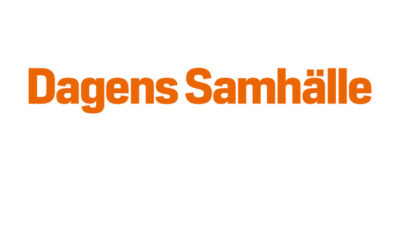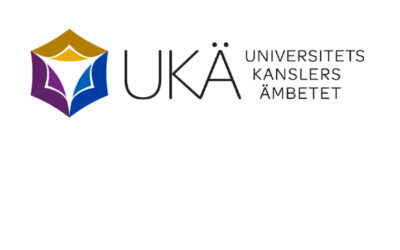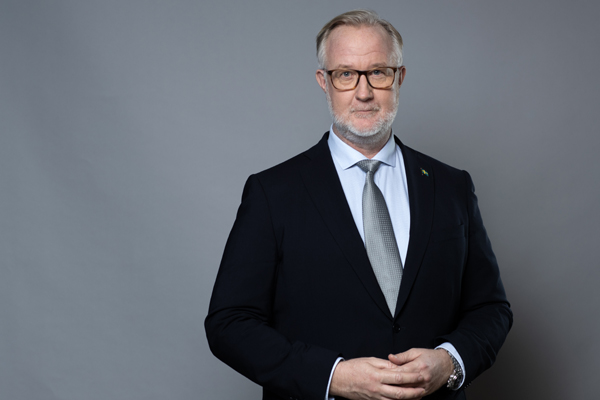OEB Global 2020 hölls virtuellt precis som de flesta andra konferenser både nationellt och internationellt under 2020. OEB Global ör en av de största konferenserna inom området e-lärande, online utbildning, digitala transformation och teknologisk utveckling. Läs mer om konferensen här
Läs också mer om konferensen på SVERDs V ordförandes Blog https://i4quality.se/blog/conference-and-contributions-autumn-2020 och https://i4quality.se/blog/oeb020-par-t2
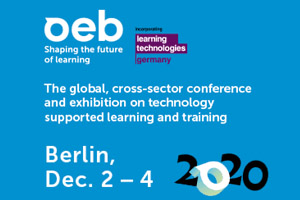

The event has a unique, cross-sector focus, fostering exchange between the corporate, education and public service sectors. This includes participants from multinational companies to SMEs, from higher education and research institutions to schools, from ministries to local authorities and from global IGOs to local NGOs.
Konferensen hölls under 2-4 december (30 november – december 2020 med huvudtemat Making Learning Meaning och följande underteman.
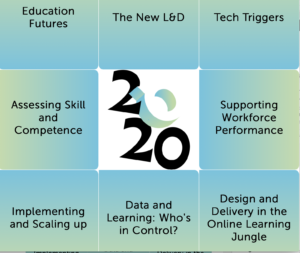

What do we want from learning? What do we expect from it in the future? And how can technology help us achieve it? We need to think about our ultimate objective, both individually and collectively. We talk about ‘transformative’ change but do we really understand what we mean? We say we want to put learning ”at the heart of life”, we are passionate about educational opportunity, we care deeply about lifelong learning but do we even know what our real goal is? Where do we want to go and how do we get there? How do we give real significance to education and training? How do we make learning mean something? How does learning become meaningful? OEB Global 2020 will not only look at the process of learning, but also its purpose, asking what we want to make learning mean. Like a star above the horizon, it will help point the way to our destination.


SVERD o SVERDs V Ordförande var tillsammans med ICDE värd för en workshop om OER och UNESCO OER Recommendation från 2019.
This workshop we will present the UNESCO OER Recommendation and discuss key ongoing initiatives to support its implementation from the ICDE OER Francophone Africa working group, capacity building activities and project. In addition, we will go into findings and recommendations for the way forward based on the ICDE OER Advocacy Committee Survey. Finally, Participants will be invited to interact with international experts on opportunities and challenges of the OER UNESCO Recommendation in the context of COVID-19.
Talare var Torunn Gjeldsvik ICDE, Zeinep Varaglu, UNESCO Dynamic Coalition, Jacque Dang, Aunege, Anais Malbrand Roed, ICDE and Ebba Ossiannilsson, ICDE and SADE
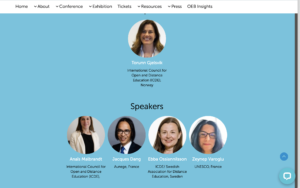

The OER Dynamic Coalition – launched by UNESCO on 2 March 2020 – has been established to support the implementation of the UNESCO OER Recommendation. It is composed of experts from Member States, with a focus on UNESCO National Commissions, IGOs, UNESCO Category 2 Centres, specialised institutions, civil society and the private sector.
The concept for the OER Dynamic Coalition originated from the Ministerial Statement delivered at the 2nd World OER Congress, which was signed by the 14 Ministers responsible for Education on the event’s Ministerial Panel. The OER Dynamic Coalition is also referenced in the Preliminary Report for the Draft Recommendation sent out to Member States in April 2019 and was endorsed by the Category 2 Meeting on the draft Recommendation, held on 27 and 28 May 2019.
The vision for the OER Dynamic Coalition is to expand and consolidate commitments to actions in the area of OER, and to promote and reinforce international cooperation among all relevant stakeholders.
The principles of gender equality, geographic distribution, and open and accessible participation for all stakeholders to contribute ideas, knowledge and information are guiding principles of the OER Dynamic Coalition.
The OER Dynamic Coalition is made up of four Working Groups dedicated to the first four Areas of Action laid out in the Recommendation, namely: capacity building, supportive policy, inclusive and equitable quality OER, and sustainability models. Its main role is to share necessary expertise, ensure networking and create synergies towards the implementation of each Area of Action.


